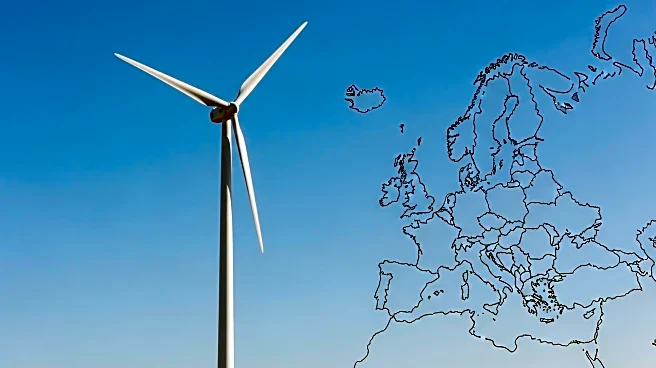What is the story about?
What's Happening?
Poland has called on European Union member states to cease importing Russian energy by the end of 2026, two years earlier than the EU's current plan. This appeal comes in response to recent security concerns, including a Russian drone incursion into Polish territory. Poland's Energy Minister, Milosz Motyka, emphasized the need for a unified EU stance to phase out Russian oil imports, citing political and strategic risks. The European Commission, led by Ursula von der Leyen, is expected to propose an accelerated timeline for ending Russian fossil fuel imports. Poland has also highlighted the potential role of U.S. liquefied natural gas in replacing Russian gas supplies.
Why It's Important?
The push to end Russian oil imports by 2026 reflects growing security concerns in Europe, particularly in light of Russia's actions in Ukraine and recent airspace violations. This move could significantly impact the European energy market, as countries like Hungary and Slovakia remain reliant on Russian energy. The shift away from Russian oil and gas could strengthen EU energy independence and reduce geopolitical vulnerabilities. However, it also poses challenges for countries with existing ties to Russian energy supplies, necessitating alternative energy sources and infrastructure adjustments.
What's Next?
The European Commission's proposal to expedite the phase-out of Russian energy imports will likely face negotiations among EU member states. Poland's advocacy for U.S. LNG as an alternative could lead to increased transatlantic energy cooperation. The EU's decision-making process will involve balancing energy security, economic impacts, and political considerations. The outcome will influence the EU's energy strategy and its relations with both Russia and the United States.
















